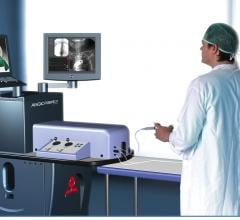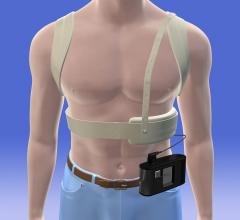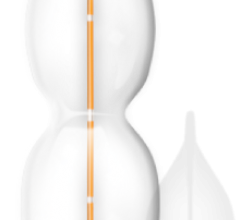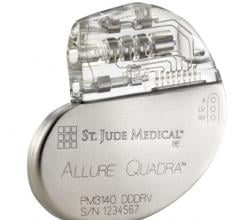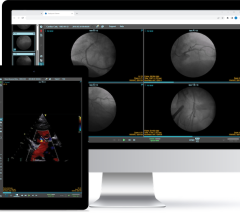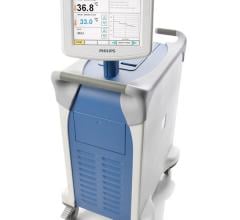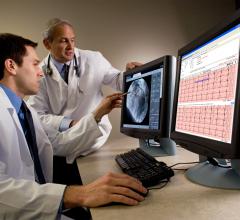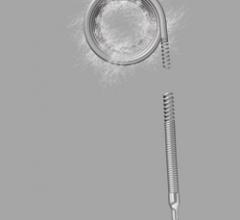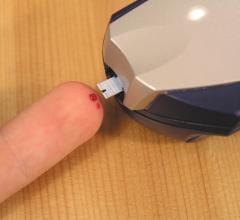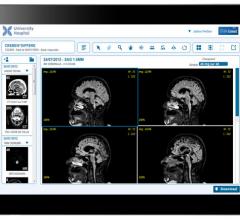eCardio Diagnostics announced the launch of eCardio Verite — a patient-friendly, wireless monitor offering seamless transition between mobile cardiac telemetry and cardiac event monitoring when directed by a physician.
Simbionix USA Corporation is proud to announce the release of various training modules for the ANGIO Mentor endovascular simulator.
Zoll Medical said results from the prospective registry and follow-up of Patients Using the Wearable Defibrillator (WEARIT-II) trial will be presented in a late-breaking clinical trial presentation at Heart Rhythm 2013. The session will be presented during the Heart Rhythm Society’s 34th Annual Scientific Sessions, Friday, May 10, 1:30-3 p.m., session number SP22.
Cardiac PET/CT represents a major advancement in cardiovascular diagnostics, offering significant clinical and ...
InterValve Inc. announced that it has received 510(k) clearance to market the new V8 Aortic Valvuloplasty Balloon Catheter in the United States.
Acutus Medical Inc. (ACM) announced that it has performed its First-In-Man clinical study of its cardiac catheter to provide highest-quality real-time 3-D mapping of the human heart.
St. Jude Medical Inc. announced CE Mark approval and European launch of its Allure Quadra Cardiac Resynchronization Therapy Pacemaker (CRT-P). This CRT-P system offers more pacing options to deliver higher success rates, as evidenced by robust clinical data. Allure Quadra CRT-P brings the quadripolar lead technology to the pacemaker market. Quadripolar leads allow for increased implant efficiencies, which clinical data indicates can result in fewer surgical revisions. The Allure family of devices also offers heart failure (HF) diagnostics, including CorVue Impedance Monitoring, for improved patient management.
SPONSORED CONTENT — Studycast is a comprehensive imaging workflow system that allows healthcare professionals to work ...
The U.S. Food and Drug Administration approved Kcentra (prothrombin complex concentrate, human) for the urgent reversal of vitamin K antagonist (VKA) anticoagulation in adults with acute major bleeding.
Royal has completed patient enrollment in the CHILL-MI clinical study designed to further evaluate the safety and effectiveness of the company’s InnerCool RTx endovascular cooling system in patients with ST-elevation myocardial infarction (STEMI).
Cook Medical has initiated a global voluntary recall of its Zilver PTX Drug Eluting Peripheral Stent based on its investigation into a small number of complaints that the delivery system of the device had separated at the tip of the inner catheter. Cook received 13 complaints of delivery system tip separation with an occurrence rate of 0.043 percent. Two adverse events, including one death, occurred in cases where a tip separation was reported.
Providing exceptional cardiovascular care for patients to achieve the best possible outcomes is the number one goal for ...
The first patient in the United States has been implanted with the Boston Scientific Corporation ImageReady MR Conditional pacing system in the SAMURAI clinical trial. The study is designed to confirm the safety and effectiveness of the system in the magnetic resonance imaging (MRI) environment. While MRI images can help clinicians make informed decisions about treatment and care, most pacemakers are not compatible with MRI technology, and therefore patients may not have access to the sophisticated scanning capabilities of the diagnostic system.
Agfa HealthCare announced that Hunt Regional Healthcare, Greenville, Texas, has upgraded its Agfa HealthCare picture archive and communication system (PACS) to Impax 6.5 and installed Agfa HealthCare's Cardiology PACS and Xero Viewer to deliver a consolidated view and centralized management of patient, image and information data. With the addition of Agfa HealthCare's Xero Viewer, physicians are able to access the nearly 100,000 imaging exams and reports done each year, on virtually any Hunt Regional facility device. Because the information is web-based, physicians can access the results in real time.
Cook Medical has launched a new fully-retractable .035 inch embolization coil, intended for peripheral arterial and venous embolization. Embolization is a nonsurgical, minimally invasive procedure performed by a physician to block or reduce blood flow in arteries and veins. Cook showcased the Retracta Detachable Embolization Coil at the annual Society of Interventional Radiology (SIR) meeting.
Cardiac positron emission tomography (PET) is growing in popularity among cardiologists because it provides the ability ...
A simple self-monitoring test could reduce the risk of stroke by half in thousands of people in the United Kingdom who currently take warfarin to prevent blood clots. Better access to self-monitoring of international normalized ratio (INR) levels, which measures how long it takes blood to form a clot, could also lower mortality rates by nearly two fifths,[1] reduce the number of complications and has the potential to save the U.K. National Health Service (NHS) around £62 million a year,[2] a group of members of parliament (MPs), patients and charities stated this week.
The Alliance for Integrity in Medicare (AIM), a broad coalition of medical specialty, laboratory, radiation oncology, and medical imaging groups committed to ending the practice of inappropriate physician self-referral, announced that it is pleased that the updated Simpson-Bowles proposal recommends constricting the in-office ancillary services (IOAS) exception. AIM has long supported the position expressed by the Moment of Truth Project on physician self-referral.
According to a new survey by Etiam, hospitals see a significant need for an organized system to manage the sizable flow of medical images many receive from beyond the enterprise. Hospitals also expressed concern about the security of the cloud, which increasingly plays a role in cross-enterprise access to this patient data.

 May 02, 2013
May 02, 2013
